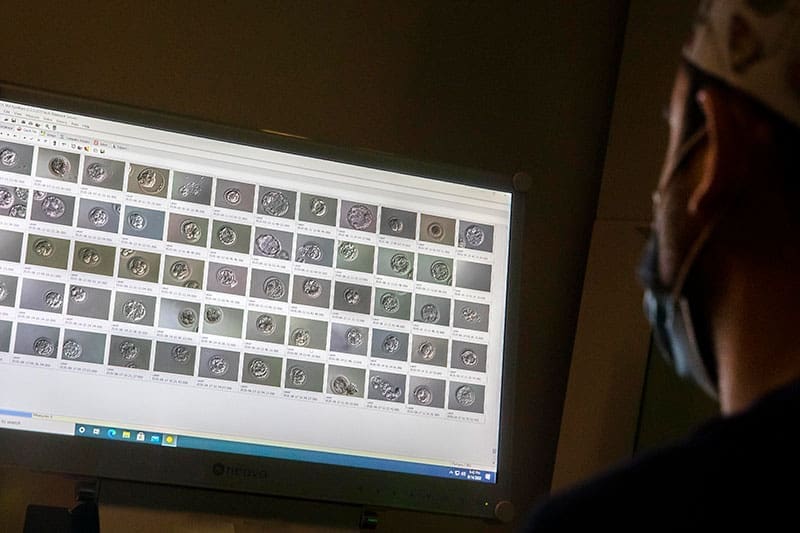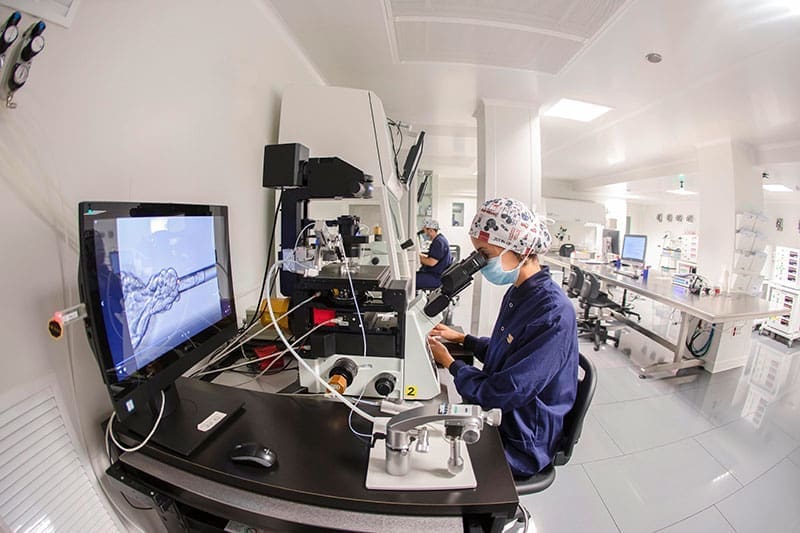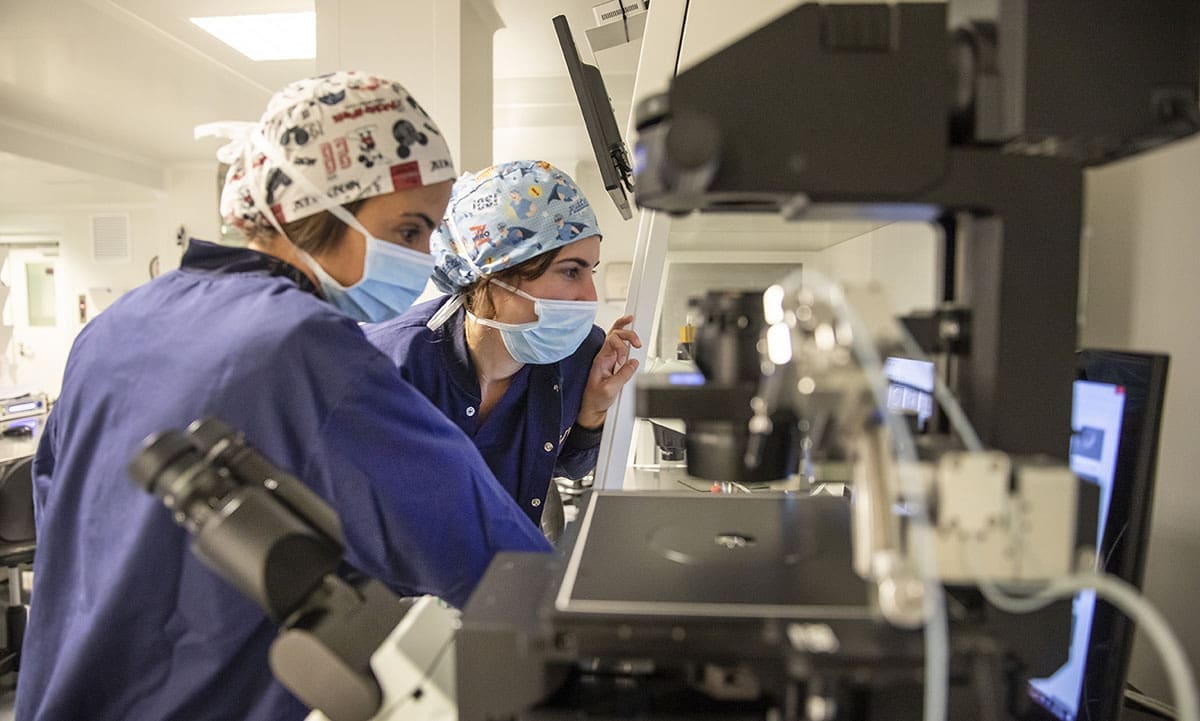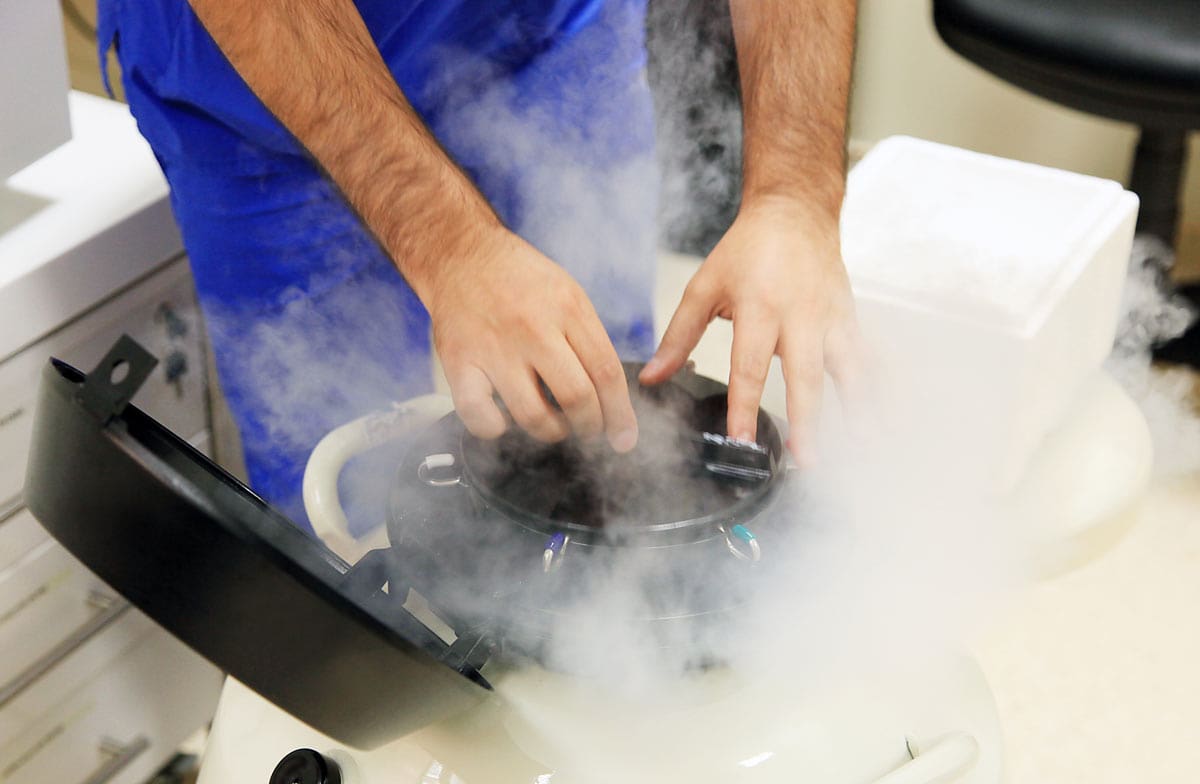Preventing inherited diseases in our children
Preventing inherited diseases in our children
Preimplantational Genetic Testing is an enormous aid to the practice of reproductive medicine since it enables detection of embryos with genetic and chromosomal alterations, thus preventing miscarriages and transmission of significant diseases, such as cystic fibrosis, thalassemias, dystrophies, etc., to our children.
When is PGT recommended?
When is PGT recommended?

Normally, a prior indication from a specialist is required to carry out PGT. The indications are:
- Either of the future parents is a symptomatic or asymptomatic carrier of a genetic disease or of any chromosomal abnormality.
- The woman is carrier of a disease linked to the X chromosome.
- A couple with gynecological history of recurrent miscarriage, implantation failure or advanced maternal age
- Family history
- If either of the parents has an illness
Preimplantational Genetic Testing: procedure
Preimplantational Genetic Testing: procedure
The PGT study can only be conducted on embryos created by in vitro fertilization. Moreover, it is important to have a good number of embryos, since the abnormal ones will be disposed of after the study and only those diagnosed as normal for the purpose of the study will be transferred. For conducting the PGT, it is better that the embryos are cultivated until the blastocyst stage, which is attained on the 5th-6th day after fertilization. This is the moment when the embryo reaches an internal cellular mass that will develop to form the fetus, as well as another external layer called trophectoderm, which will go on to form the placenta. The Embryo Biopsy is conducted on the latter. Embryo Biopsy is the technique that permits making a small orifice in the trophectoderm of the embryo to aspirate 4-5 cells with a micropipette. Since these cells will develop to form the placenta, if the technique is carried out properly, it should not affect the development of the fetus. Once the biopsy has been carried out, the embryo is vitrified or transferred after learning the result of the study.
Study of the embryo
Study of the embryo

The biopsy samples of all embryos are studied in the genetics laboratory according to the couple’s indication. Once the study is concluded, the laboratory issues a report that indicates which embryos are transferable and which are not. Thanks to Preimplantational Genetic Testing, we can prevent well-known diseases, such as Down syndrome, as well as many so-called rare diseases, and even some types of inherited cancer. At the Juana Crespo Clinic we have a PGT laboratory staffed by professionals experienced in the study of the embryo. All of this has made us one of the clinics with the highest success rate using this technique.
Types of PGT
Types of PGT

BLOG
Request your first visit
Request your first visit
Request personalized information about your case. Fill out this form and we will contact you.









